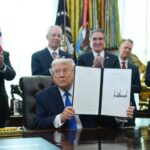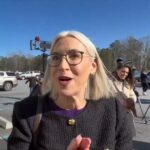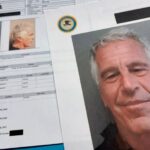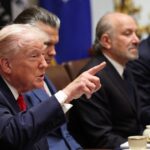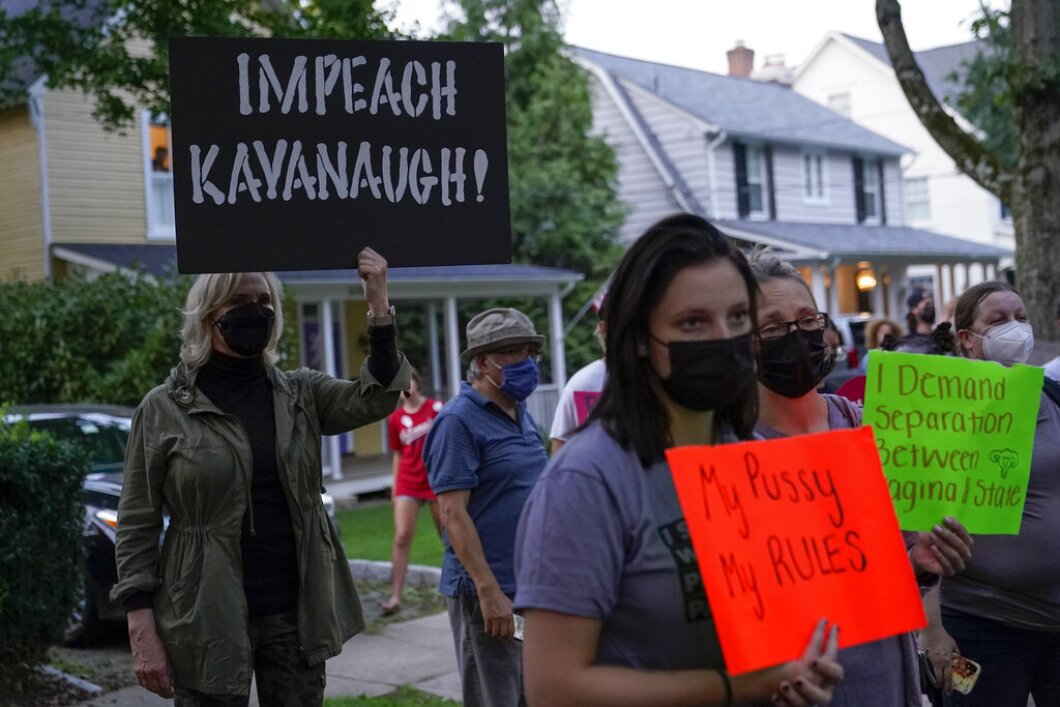
The Supreme Court faced an unprecedented breach of trust one year ago when a leaked draft opinion signaling the overturning of Roe v. Wade was published, an incident that continues to test the institution’s foundation of trust and credibility.
Last year on the evening of May 2, protesters amassed outside the Supreme Court almost as soon as Politico published the draft of the Dobbs v. Jackson Women’s Health Organization decision, signaling a majority of the justices were handing power back to states on abortion restrictions. The demonstrations, animosity, and threats the justices endured since that day, coupled with the June 24 official release of the opinion, are unlike anything the highest court in the land has ever seen.
SUPREME COURT’S REPORT ON DOBBS INVESTIGATION FAILS TO FIND DRAFT LEAKER
The leak was “horrible” and “shocking,” according to Justice Elena Kagan. Justice Clarence Thomas spoke about it as having irreparably damaged the court’s atmosphere of trust. Just last week, Justice Samuel Alito, the author of the Dobbs decision, castigated pundits who theorize the leak must have come from the conservative side in order to lock in the five-vote majority.

“That’s infuriating to me,” Alito said of that theory in a Wall Street Journal interview. “Look, this made us targets of assassination. Would I do that to myself? Would the five of us have done that to ourselves? It’s quite implausible.”
Soon after the leak, the justices released a joint statement referring to it as a “betrayal of trust,” with Chief Justice John Roberts announcing an investigation into its origins by Supreme Court Marshal Gail A. Curley.
The homes of Republican-appointed justices including Alito, Thomas, and Amy Coney Barrett sustained protests in the weeks before the final decision. And on June 8, 26-year-old Nicholas John Roske was arrested and charged with attempted murder after he flew thousands of miles from California to the home of Justice Brett Kavanaugh, carrying a gun, a knife, and zip ties.
Congress would later pass a bill aimed at increasing security surrounding the justice on June 14.
While Alito said the Marshal “did a good job with the resources that were available to her” and ultimately agrees that the evidence from the investigation was insufficient for a public accusation, he claimed that he has a “good idea” about who would commit such an act of betrayal.
“It was a part of an effort to prevent the Dobbs draft … from becoming the decision of the court. And that’s how it was used for those six weeks by people on the outside — as part of the campaign to try to intimidate the court,” Alito said.
The high court’s probing would ultimately come up inconclusive on Jan. 19, nine months after the start of the investigation. Since then, lawmakers and intelligence experts have pondered whether the Supreme Court did enough to even come close to finding a culprit.
Sen. Ted Cruz (R-TX) on Sunday called for Roberts to invite the FBI to identify the perpetrator behind the leak.
“The leaking of that draft was one of the greatest violations of the trust of the integrity of the Supreme Court of the United States. It was really an assault on the rule of law,” Cruz told Sunday Morning Futures with Maria Bartiromo.
“The chief justice should call in the FBI to assist with the investigation,” Cruz added. “The marshals’ office conducted the investigation. The marshals’ office are very good people, but they don’t have the equipment. They don’t have the experience in forensic investigations. The FBI does.”
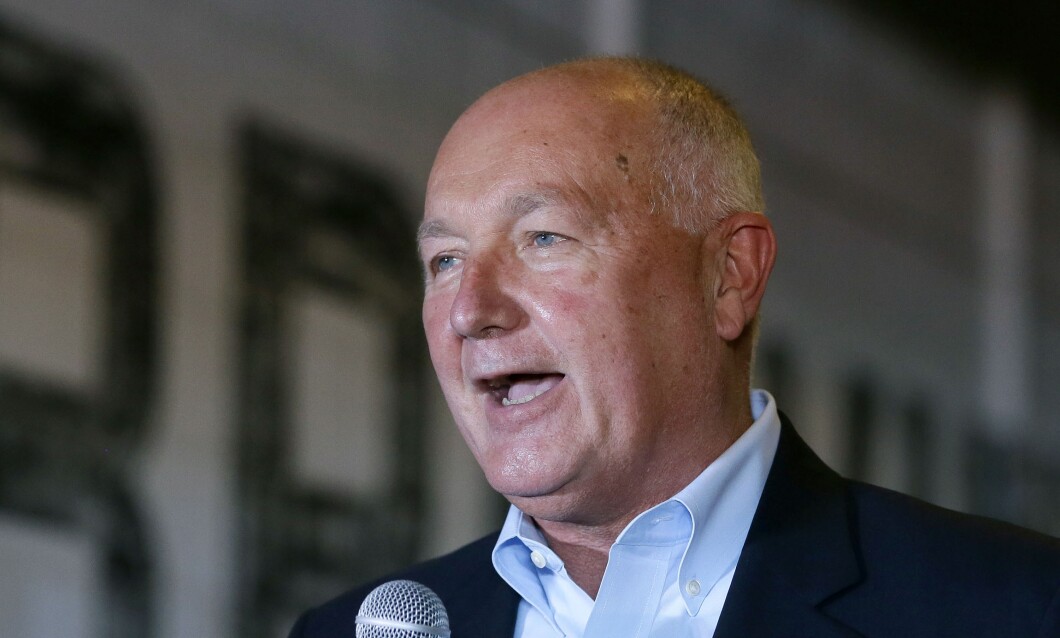
Former Michigan GOP Rep. Peter Hoekstra, who worked on the House Intelligence Committee, told the Washington Examiner that the Supreme Court should have relied on the Justice Department and the FBI to help with the investigation from the beginning if they wanted to uncover the leaker.
“They should have been focused on solving the problem and getting and catching the person who done it,” Hoekstra said. “You can almost argue it was malpractice by the law enforcement officials at the Supreme Court.”
Hoekstra noted that the FBI acted swiftly to investigate the leak of classified documents from the Pentagon, arresting Jack Teixeira, 21, an Air National Guardsman.
While the Supreme Court sought to investigate the egregious breach of trust, several reports emerged in the ensuing months that have further cast doubt on the observance of ethics in the high court.
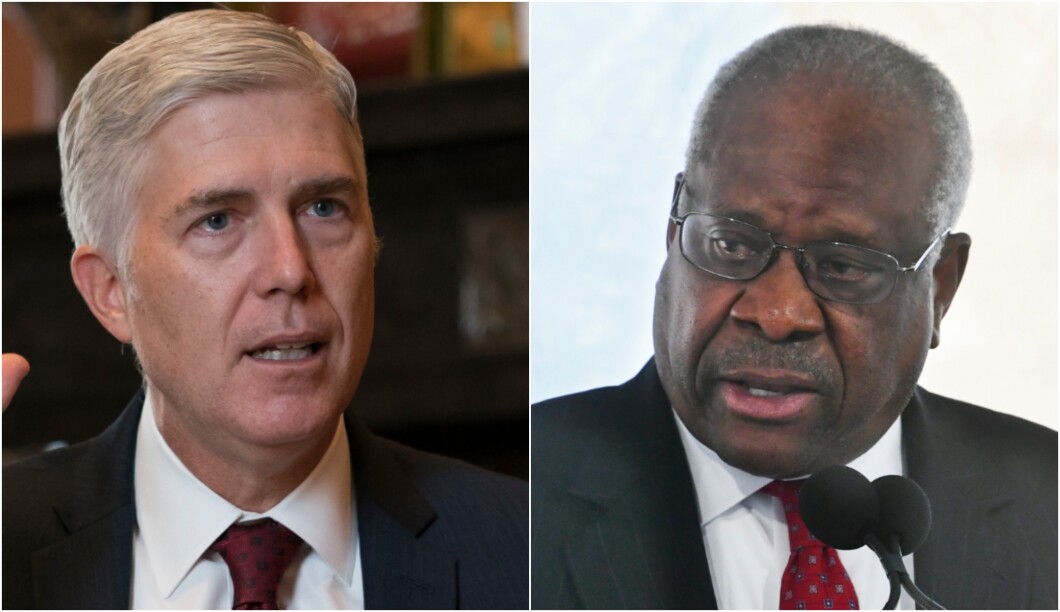
This year, it was revealed that Justices Thomas and Neil Gorsuch omitted important details about real estate transactions. For Thomas, a series of ProPublica reports exposed trips he took that were financed by Harlan Crow, a GOP donor who also purchased a property from Thomas without the justice notating it in his disclosure forms. Gorsuch was a joint owner of a property purchased by a major law firm CEO in the weeks after his 2017 confirmation, according to Politico.
On April 26, Sens. Angus King (I-MN) and Lisa Murkowski (R-AK) introduced bipartisan legislation to enact a code of ethics for the justices in the wake of ethical concerns. That bill also makes clear that the Supreme Court can and should call on resources such as the FBI and the U.S. Marshals Service or another agency to help with a future hypothetical investigation.
Rather than asking another federal agency to assist in the leak investigation, the Supreme Court hired the Chertoff Group, whose head, Michael Chertoff, served as homeland security secretary during the George W. Bush administration. Chertoff wrote in the investigation’s report that “At this time, I cannot identify any additional useful investigative measures.”
It was later revealed in January that the high court failed to disclose it had contracted the Chertoff Group for security assessments and consultation related to pandemic protocols at the high court in years past, amounting to nearly $1 million in services. At the time, Vermont Law School professor Jared Carter said the failure to disclose Chertoff’s previous involvement with the Supreme Court could at least amount to “an appearance that’s problematic to the integrity of the investigation.”
A spokeswoman for the Chertoff Group declined to comment to the Washington Examiner when asked whether its experts believed further law enforcement assistance would have benefited the high court’s leak investigation.
Dennis Lormel, a 28-year retired agent for the FBI and president of the Society of Former Special Agents of the FBI, told the Washington Examiner the agency is always ready to assist “when requested.”
“Without expressing any opinion on the results of the internal investigation conducted by the staff of the U.S. Supreme Court, assisted by expert investigators from the Chertoff Group, into the unauthorized disclosure, it is true that FBI forensics experts have extensive experience conducting such investigations. The FBI has always been ready to assist, where appropriate, when requested,” Lormel said.
On the other hand, legal experts such as Mathew Forys, chief of staff at the Landmark Legal Foundation, have suggested there could be concerns to “bring in the FBI and subject themselves to scrutiny from a separate branch of government.”
“The court is small and keeps its operations under wraps. Although they produced a public investigative report, it was vague about key details. A follow-up statement had to be issued to explain that the justices had not been questioned under oath, for instance,” Forys said, contending the executive branch would have more experience in conducting an investigation.
As for whether the leaker’s identity will ever be revealed, only time will tell.
“The only way they’re going to be uncovered is on his or her own terms, you know, with a book deal or something,” Carrie Severino, president of the Judicial Crisis Network and former clerk to Thomas, told the Washington Examiner.
But Severino noted anyone who reveals themselves as the leaker may wait until “any relevant statute of limitations” expire given that lawmakers such as Sen. Bill Cassidy (R-LA) have proposed legislation to fine leakers heavily and punish them with up to 10 years in prison.
For now, the high court must contend with the breach of trust and attempt to establish a new balance as polls suggest waning public confidence in the institution.
CLICK HERE TO READ MORE FROM THE WASHINGTON EXAMINER
The justices and staff, meanwhile, just want to get back to normal as soon as possible.
“That’s what we hope will happen,” Alito said.


